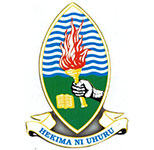About The Project
This Decision Support Tool is part of a three year project (2013 - 2016) funded by the United States Agency for International Development (USAID). The project, titled “Climate Resilience of Rice and Maize in the Rufiji Basin,” is examining the impact of climate change and climate variability on rice and maize production in the Rufiji River Basin in southern Tanzania. The Rufiji Basin is known for its high potential for agricultural production. However, the Basin is also highly vulnerable to impacts of climate change and climate variability, which are affecting agricultural production- particularly rice and maize. The aim of the project therefore, is to contribute to the enhancement of rice and maize production in Rufiji Basin by recommending practical climate change adaptation strategies and interventions. These will include, among other things, improved land and water management and appropriate agricultural practices.
There are five main program activities. First, to undertake field research; second, to undertake climate, crop and water modeling; third, to carry out a social and ecological vulnerability assessment of maize and rice production in the area; fourth, to undertake capacity building among key stakeholders; and fifth, to recommend from findings practical and relevant climate change and variability adaptation strategies and interventions for rice and maize production.
The Project contributes to the USAID Global Climate Change initiative, the Feed the Future Initiative (FtFI) and the USAID-Tanzania supported Southern Agricultural Growth Corridor (SAGCOT). The project is being implemented by a team of researchers from various institutions with expertise in climate change, agriculture and development. They include the Institute of Resources Assessment of the University of Dar es Salaam in partnership with the Michigan State University, USA. Key collaborators are the Tanzania Meteorological Agency, the Ministry of Agriculture and Food Security, the Ministry of Water; and the Rufiji Basin Water Board.
This Website was made possible through the support of the American People through the United States Agency for International Development (USAID), but the contents solely reflect the views of the Government of Tanzania.
Current Project Staff
- Prof. Pius Z. Yanda (PhD). He serves as the Principal Investigator. He is responsible for overall research and quality assurance coordination.
- Dr. Emma T. Liwenga (Senior Researcher and Senior Lecturer, Agronomist). She is a senior researcher based at the Institute of Resource Assessment.
- Dr. Adolphine G. Kateka (Researcher - Economist, Natural Resources Economics). She is a senior researcher based at the Institute of Resource Assessment.
- Mr. Edmund Mabhuye (Natural Resource Assessment and Management expert). He is a project manager. He works very closely with the project coordinator on day-to-day planning and implementation of research and stakeholders engagement across scales and levels.
- Ms. Edith Benedict (Natural Resource Assessment and Management Expert). She works in support of the senior researchers on various research and stakeholders engagement activities.
- Mr. Abdallah I. Henku (Resources Assessment and Climate Change expert). He works in support of the senior researchers on various research and stakeholders engagement activities.
- Mr. Nico A. Malik (Natural Resources and Environmental Management expert). He works in support of the senior researchers on various research and stakeholders engagement activities.
- Dr. Jennifer Olson (PhD) (Associate Professor, human geographer) serve as lead Principal Investigator coordinating the Michigan State University (MSU) activities and liaising with Tanzania.
- Dr. Jeffrey A. Andresen (PhD) (Professor, agro-climatologist) provides expertise in historical climate patterns and agro-climatic modeling.
- Dr. Gopal Alagarswamy (PhD) (Research Associate, agronomist) conducts crop modeling of rice and maize including effects of recent and future climate change.
- Dr. Nathan Moore (PhD) (Associate Professor, climatologist) conducts climate modeling and provide climatological data to link to the crop models and the surface water model.
- Dr. William Northcott (PhD) (Chief innovations officers, Agrible, Inc.; hydro-geologist) conducts hydrological modeling in a GIS framework to identify the effects of land use and climate change and variability on water flow and availability for irrigation.
- Dr. Paul Miller (PhD) (Chief Science Officer, Agrible, Inc.; hydro-geologist) conducts hydrological modeling including calibration and preparation of datasets for the decision support tool.
- Dr. Cibin Raj (PhD) (Water Resources Engineering). Conducts hydrology modeling including with climate change scenarios.
- Mr. Chad Hawkins (MSc) (Senior Geospatial Scientist at Agrible). Conducts land use, population and other modeling for the future scenarios.
- Dr. David Pike (PhD) (Agronomy at Agrible). Provides expertise on crop and irrigation components of hydrology system.
- Dr. Samantha Horvath (PhD) (Senior Scientist, Physical Chemistry, Agrible). Provides expertise on model integration.
Contact:
Prof. Pius Z. Yanda
Institute of Resources Assessment
University of Dar es Salaam
P. O. Box 35097
Dar es Salaam, Tanzania
Email: pyanda@ira.udsm.ac.tz
Phone number + +255 22 2410144
Assc. Prof. Jennifer Olson
Department of Media and Information
Michigan State University
East Lansing MI 48824, USA
Email: olsonjj@msu.edu
Phone number: +1 517 432-3234



